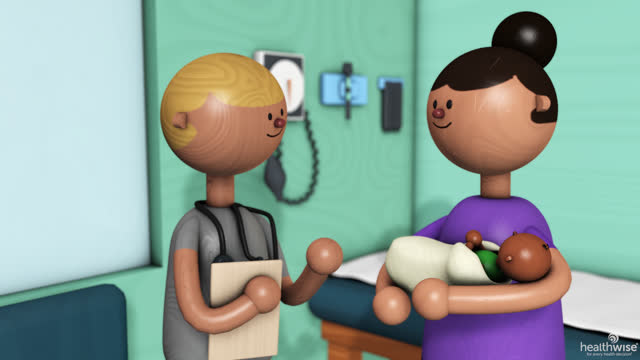It's important for your child to have regularly scheduled checkups, often called well-child visits, beginning shortly after birth and lasting through the teen years.
These appointments allow your doctor to keep a close eye on your child's general health and development. Finding possible problems early gives your child the best chance for proper and successful treatment. Also, any concerns you have about your child can be discussed during these visits.
During these visits, the doctor examines your child and asks you questions about your child's development and behavior. Immunizations also are either given or scheduled at this time.
Your child's doctor will recommend a schedule for well-child visits. One example is for visits at ages:
- 3 to 5 days old.
- By 1 month.
- 2 months.
- 4 months.
- 6 months.
- 9 months.
- 1 year.
- 15 months.
- 18 months.
- 2 years.
- 30 months.
- 3 years.
After age 3, well-child visits are usually scheduled yearly through the teen years.
Credits
Current as of: October 24, 2024
Current as of: October 24, 2024





